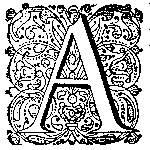Language as an Object of Empirical Study in the Dutch Republic
DOI:
https://doi.org/10.51750/emlc11335Keywords:
knowledge culture, emperical training, linguistic education, youthsAbstract
This article takes a dictionary by Joos Lambrecht, dating from 1546, as its point of departure. It argues that this dictionary, as well as other dictionaries and treatises produced in the wake of Lambrecht’s, did more than teach their young audience in the Dutch Republic the meaning of existing words and thus transfer cultural and linguistic knowledge as was already understood. They also taught youngsters how to obtain (new) knowledge from their own empirical observations. The Dutch books on morphology, orthography, phonology, and grammar – produced in large numbers – offered their readers the opportunity to use their own language as an object for empirical study. By charting the dynamics of language, knowledge, and empirical training, it is argued that the Dutch language was, for a short time, treated by writers not merely as a means to express and share knowledge, but also as an object of study in itself. What might have formed an accessible training ground for the development of skills in empirical observation and especially self-reflexive practice, was, however, soon snuffed out by a second wave of tutorial books which emphasised the prescriptive over the explorative.
Downloads

Published
Issue
Section
License
Copyright (c) 2021 Els Stronks

This work is licensed under a Creative Commons Attribution-NonCommercial 4.0 International License.





